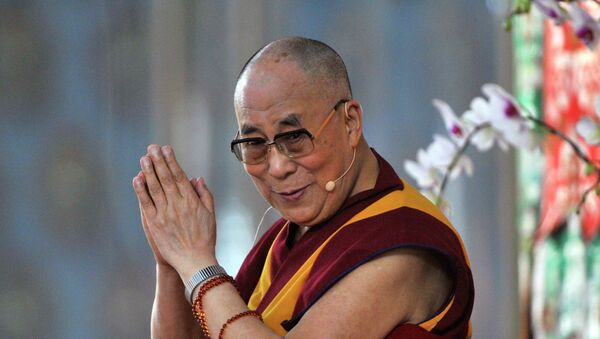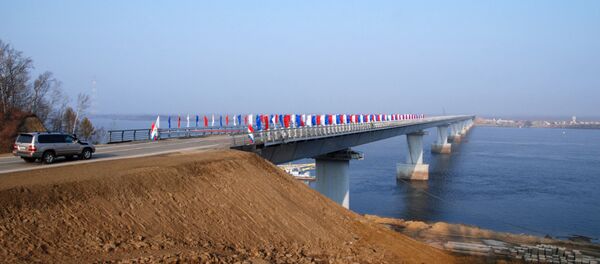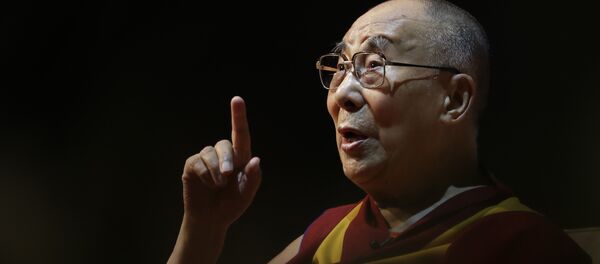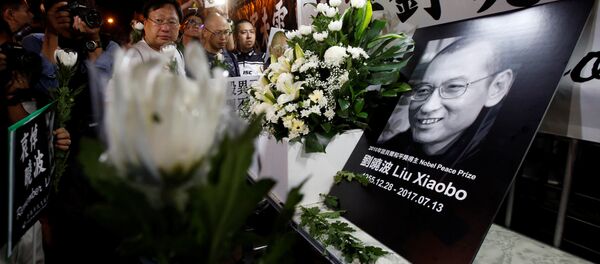On August 11, four days before the trip was scheduled to begin, the Dalai Lama's official website said the Tibetan political exile had to cancel his trip due to health reasons.
The sudden cancellation sparked an avalanche of speculation, with some guessing that Chinese government pressure had been the actual cause of the cancellation.
Believing that Tibetan issues are a matter of internal Chinese affairs, China has long taken a tough stance toward countries that invite the Dalai Lama or approve his visits.
Experts say no matter what the real reason for the sudden change of plans, as time goes on it will be increasingly difficult for the Dalai Lama to travel internationally as his political influence is on the wane.
The Dalai Lama had been expected to visit Botswana's capital Gaborone from August 15 to 20 to address a human rights conference and meet the country's president despite China's objections, Reuters reported.
The trip would have been his first visit to Africa, after he was repeatedly denied a visa to South Africa in the past.
However, on August 11, the Dalai Lama's official website posted a notice, saying he had cancelled his trip due to health reasons. "[H]is 82-year-old body was telling him to rest," the notice read.
The notice also said that the Dalai Lama found that carrying out his activities has left him unusually tired, and his physicians have "also advised him to avoid undertaking long journeys for the next few weeks."
However, he is still scheduled to visit Europe from September 10 to 25 to attend a series of events including public talks and conferences, according to the website, and there has been no indication that these events will be cancelled or postponed due to his "exhaustion."
Many have speculated that China's objections and warnings toward Botswana were the deciding factor. Lian Xiangmin, an expert at the China Tibetology Research Center, said, "I don't know the actual circumstances, but I would say it's very probable that Botswana is taking into account its relations with China. After all, compared with China, the Dalai Lama is trivial."
Wang Xiaobin, another scholar with the China Tibetology Research Center, says that the post on the Dalai Lama's website may have been a face-saving move. "Health conditions may have been an excuse that the Dalai Lama used to give himself an out," he told the Global Times.
China and Botswana signed a trade agreement in 1986 to facilitate bilateral trade. According to China's foreign ministry, in 2016, the total trade volume between China and Botswana was $271 million. By the end of 2016, Chinese manufacturers had signed labor contracts totaling $9.91 million in Botswana. China has also been offering medical aid to the country.
China uses tough measures against countries which allow the Dalai Lama to visit, including temporarily cutting off trade or aid, in addition to talks through diplomatic channels.
Last November, after Mongolia approved the Dalai Lama's visit to the country, China launched a series of sanction-like countermeasures, including indefinitely postponing two inter-governmental meetings at which Chinese loans to Mongolia were to have been discussed.
Bilateral relations between China and Mongolia stalled until December, after Mongolia, a country with a long Buddhist tradition, made a public apology saying it deeply regretted allowing the Dalai Lama to visit, and promised not to invite him again.
But China seems to have taken a different approach toward Botswana. Although China's foreign ministry repeatedly warned the country, on July 24, more than a week after the visit was officially announced, China finalized a one-million dollar flood relief donation to Botswana to counter the effects of cyclone Dineo which hit the country in February, the Xinhua News Agency reported. The signing ceremony, in Gaborone, was attended by the Chinese Ambassador to Botswana Zhao Yanbo and the country's minister of finance and economic development, Kenneth Matambo.
"It is worth noting that whether China is poor or rich, whether Botswana is poor or rich, China never stopped its assistance to its Batswana friends," Zhao said at the signing ceremony, according to website of the Chinese embassy in Botswana.
He also said China and Botswana have been working on the construction of two primary schools funded by Chinese grants and that China will send an expert team to Botswana to explore the feasibility of water transfer projects.
According to Mmegi, a national English-language newspaper in Botswana, Chinese officials have also been holding one-on-one meetings with members of the parliament and traditional leaders this July.
Responding to the Global Times' question as to whether the cancellation of the trip had anything to do with China's pressure on Botswana, Hua Chunying, spokesperson for China's foreign ministry, said "The Chinese side values the development of friendly and cooperative relations with Botswana and hopes the relations between the two countries can continue to develop in a positive and steady way."
Hua also said that China has always been, and remains, firmly opposed to the Dalai Lama visiting any country to engage in activities aimed at splitting China.
Previously, President Ian Khama's decision to accept the Dalai Lama's visit to Botswana also received criticism from his own country. Duma Boko, president of the Botswana National Front, the main opposition party in Botswana, accused Khama of being "reckless and amateurish" in his handling of Dalai's visit.
"[T]he country now totters on the brink of a wholesale severing of ties by the People's Republic of China … The (current) views represent the whims of the President and his henchmen," he was quoted as saying by Mmegi.
It has been increasingly difficult for the Dalai Lama to visit foreign countries in recent years, as his international influence has been waning and China has stepped up efforts to prevent his visits.
"As China started to take countermeasures to the countries that accepted his visit, not many countries today truly welcome his visit. He has become a troublemaker to the countries that wish to establish a friendly relationship with China," Lian said.
Political relations are of huge importance for trade with China. In 2008, after then French President Nicholas Sarkozy met the Dalai Lama in Poland, China cancelled the 11th annual China-EU summit, resulting in losses to EU trade. In 2011, South Africa refused to give the Dalai Lama a visa, likely due to the fact that China is Africa's biggest trading partner. Countries including Germany and Norway have all shunned the Dalai Lama in recent years.
A 2013 research paper by Andreas Fuchs of Heidelberg University's Alfred-Weber-Institute for Economics which looked at global trade statistics from 2002 to 2008, found that a meeting between a head of state and the Dalai Lama lead to a reduction of exports to China by 16.9 percent on average; the Dalai Lama meeting with a government member decreased exports to China by 12.5 percent on average.
"The more powerful China is, the smaller the space for the Dalai Lama is in the international community. Most countries handle their diplomatic policies according to their national interest. If they find out inviting the Dalai Lama infringes on their national interest, they would stop inviting him," Wang said.
Chinese experts say the Dalai Lama's international value depends on Western countries' strategic needs.
From the period between 1973 to 1978, for example, few countries allowed the Dalai Lama to visit because Western countries wanted to win over China at that time. "It was the Cold War, when the Soviet Union was the biggest foe of the US. The US tried to amend its relations with China so that it could isolate the Soviet Union, which was in line with its interest back then," Wang said.
The golden era for the Dalai Lama occurred in the decade after 1989. The Dalai Lama was awarded the Nobel Peace Prize, and began to frequently visit foreign countries to meet heads of state and religious leaders.
"With the dissolution of the Soviet Union, the Dalai Lama became a tool for Western countries against China," Lian said.
But as China rose to become the second largest economy in the world, that golden era is gone.
Last year, the Dalai Lama visited nearly a dozen countries including the USA, Belgium, France, Slovakia, Latvia, Switzerland, the Czech Republic, Italy, Japan and Mongolia, invited mostly by universities or private organizations. This year, he is expected to visit several countries in Europe, according to his website.
This article was written by Zhang Yu and originally published in The Global Times.







